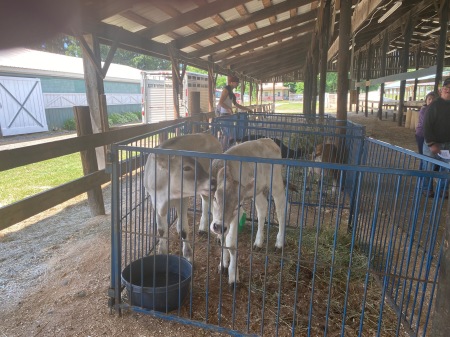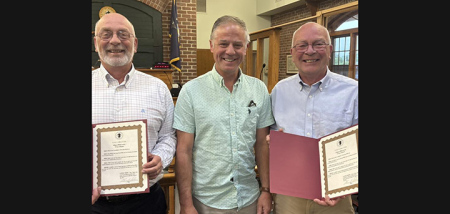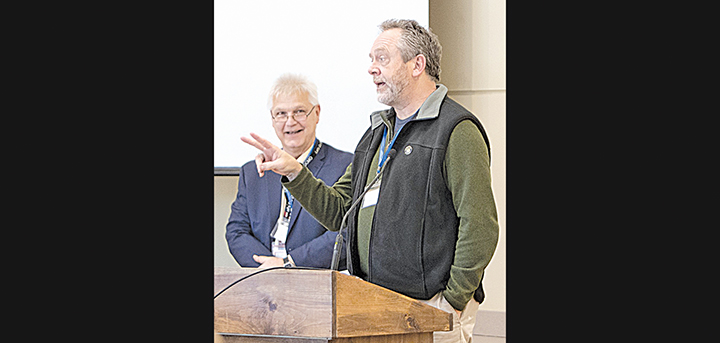Tilting At Windmills: Don Quixote
Published:
June 20th, 2025
By:
Shelly Reuben

It recently dawned on me that although many, if not most of you, know the origin of the expression “Tilting at Windmills,” some might not. And since that phrase is the title of my column, I thought I should let you in on the secret, too.
In Miguel de Cervantes’ epic novel, The Ingenious Gentleman Don Quixote of La Mancha, the book’s main character, Don Quixote, comes upon a crowd of windmills. Sworn to fight injustice wherever he finds it, this sweet, chivalrous, and slightly batty knight exclaims to his servant, Sancho Panza, “Fortune is guiding our affairs better than we ourselves could have wished. Do you see over yonder, friend Sancho, thirty or forty hulking giants? I intend to do battle with them and slay them. This is a righteous war.”
In response, Sancho asks, “What giants?”
“Those you see over there,” replies his master, “with their long arms. Some of them have arms well-nigh two leagues in length.”
“Take care, sir,” cries Sancho. “Those over there are not giants but windmills. Those things that seem to be their arms are sails which, when they are whirled around by the wind, turn the millstone.”
Like Don Quixote, I am occasionally inspired to attack giants that might, or might not, be windmills. Other times, like the noble knight himself, I ponder, I pontificate, I write poems, and I tell stories. Over my years at the Evening Sun, I have been privileged to work with editors (thank you, Tyler Murphy) who permit me to “tilt” my lance at whatever I choose. My columns, dating back to 2007, are included in my article archive. https://www.evesun.com/authors/31.
Now … a little more about Don Quixote.
This Spanish novel, published in two parts between 1605 and 1615, is one of the most widely read classics of Western literature. The author, Miguel de Cervantes – soldier, sailor, cripple (shot in his left arm, which became useless), prisoner of Albanian renegades (after five years of slavery, his mother ransomed him for 300 gold coins), novelist, and playwright – was in many ways, as fascinating as his immortal character. Cervantes began writing Don Quixote while in an Algerian prison, and thought of it as a parody of the romance novels popular in the late 1500s. These chivalric romances featured impregnable castles, knights in armor, damsels in distress, and heroic quests. However, Cervantes’ writing style is neither derisive nor sarcastic, but realistic, believable, often humorous, and charming.
The plot involves the perils and escapades – some funny, some knuckle-gnawing – of an aging country gentleman who, muddleheaded from reading too many novels about romantic chivalry, comes to believes that he is a knight in shining armor. He renames himself “Don Quixote,” and convinces Sancho Panza, a local peasant, to accompany him as his squire. Then he sets out on his battered old horse Rocinante to seek adventure, with Sancho Panza (practical, loyal, and affectionate) at his side.
This is a long, long book. I read it once cover to cover. But that was years ago, and I’ve forgotten most of it, so I am going to start again from the beginning.
In the meantime, here are some passages (some familiar) from Don Quixote. And … who knows? If you like them well enough, maybe you will be inspired to join me on my quest for adventure … and help me to tilt at a few windmills, too:
“The truth may be stretched thin, but it never breaks, and it always surfaces above lies, as oil floats on water.”
“For neither good nor evil can last forever; and so it follows that as evil has lasted a long time, good must now be close at hand.”
“Virtue is persecuted by the wicked more than it is loved by the good.”
“Thou hast seen nothing yet.”
“Wit and humor do not reside in slow minds.”
“Hope is always born at the same time as love...”
“It is one thing to write as poet and another to write as a historian: the poet can recount or sing about things not as they were, but as they should have been, and the historian must write about them not as they should have been, but as they were, without adding or subtracting anything from the truth.”
“Without intelligence, there can be no humor.”
“Time has more power to undo and change things than the human will.”
“What is more dangerous than to become a poet? which is, as some say, an incurable and infectious disease.”
“Where one door shuts, another opens.”
“You are a king by your own fireside, as much as any monarch on his throne.”
And lastly … two unforgettable lines spoken by Don Quixote (I’m sure you will recognize them) that were incorporated into the lyrics for the magnificent 1965 musical “Man of La Mancha.”
“To dream the impossible dream, that is my quest.”
“One man scorned and covered with scars still strove with his last ounce of courage to reach the unreachable stars.”
novel, The Ingenious Knight of La Mancha, Don Quixote comes upon a of finding a parking space, or robins in the
Copyright © Shelly Reuben, 2025. Shelly Reuben’s books have been nominated for Edgar, Prometheus, and Falcon awards. For more about her writing, visit: www.shellyreuben.com.
Author: Shelly Reuben - More From This Author
Comments







